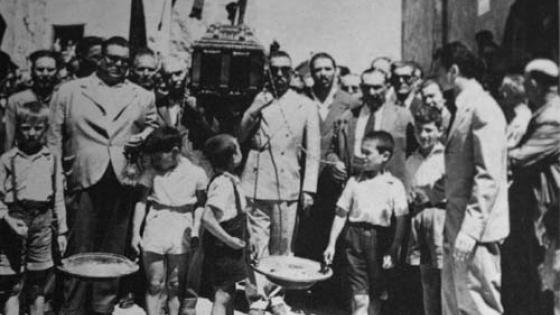Organised crime continues to pose a serious threat to state authorities and social stability worldwide. It thrives where governments are weak, stepping in to fill gaps in law enforcement and protection (Isopi et al. 2012). In these power vacuums, criminal groups grow stronger, embedding themselves in communities (De Feo et al. 2018). Beyond traditional illegal activities, they infiltrate the economy, redirect public funds, and undermine local development (Narciso and Barone 2012). The consequences are widespread: organised crime distorts markets, fuels corruption, and escalates violence (Sorrenti and Le Moglie 2020, Mocetti et al. 2019, Pinotti 2020).
Nowhere is this more apparent than in Italy, where criminal organisations like the Mafia, ‘Ndrangheta, and Camorra have long held sway over local economies and governance. Given the enduring influence of these groups, understanding how they shape citizens’ trust in the state is important. In a recent study (Campedelli et al. 2023), we surveyed over 5,000 Italians to examine how exposure to organised crime-related violence affects public perceptions of state legitimacy. The findings challenge long-held assumptions, offering a more nuanced perspective on how media narratives and crime shape civic behaviour and trust in government.
Traditionally, research on the interplay between organised crime and public trust in government has focused on the negative consequences of violence and insecurity. Many scholars have found that exposure to violence and crime reduces citizens’ trust in political institutions and weakens state legitimacy (e.g. Blanco and Ruiz 2013, Corbacho et al. 2015). Trust erosion hinders a government’s ability to combat organised crime effectively, particularly when criminal organisations exploit institutional weaknesses to gain public favour.
Contrary to common narratives, our research shows that media exposure to organised crime-related violence can actually boost citizens’ support for the state, trust in institutions, perceptions of government quality, and willingness to donate to government bodies over non-governmental organisations (NGOs). This finding is significant because in countries where organised crime is prevalent, most people do not experience its violence firsthand, but rather through news accounts or word of mouth. Importantly, this suggests that well-crafted narratives about organised crime can strengthen public support for the state even in places where trust has historically been eroded by criminal influence.
Methodology: A survey experiment in Italy
Using a large-scale survey experiment with a representative sample of 5,374 Italians, we explore how exposure to organised crime-related violence – as opposed to general criminal violence – affects trust in political institutions, perceived government quality, and overall social trust. Participants were randomly assigned to different groups and shown the same set of images depicting the aftermath of organised criminal violence in Italy. The key difference? Some were asked to reflect on general homicide rates over the past two decades, while others were prompted to consider homicides specifically linked to organised crime. This subtle shift in focus, from general violence to organised crime, allowed us to measure the psychological and emotional responses that shape public attitudes toward the state and institutions.
A notable discovery from our study is the vast misperception among Italians regarding crime trends (see Figure 1). Despite a significant decline by about two-thirds of both total as well as more specifically organised crime-related homicides over the last two decades, the respondents overwhelmingly believe that homicidal violence has increased. This discrepancy suggests that media coverage, which tends to highlight violent incidents particularly when they involve organised crime, might play a role in shaping public perception even when the phenomenon is objectively declining.
Figure 1 Italian perceptions of crime trends
Notes: Distribution of respondents’ beliefs regarding the variation in mafia homicides from 2002–2020 (left) and the variation in all homicides from 2000–2020 (right). Orange solid lines indicate average belief in the considered treatment groups, while black dashed lines refer to the ground truth variation (-69% and -64%, respectively).
Impact of organised crime on trust in the state
The most striking finding from our study is the positive link between organised crime-related framing and increased trust in the state. Respondents who were asked about their perceptions of mafia-related violence, as opposed to general crime, showed higher levels of trust in political institutions, a more favourable perception of institutional quality, and a greater willingness to donate to government bodies. In fact, when organised crime was top of their mind, participants were 11% more likely to donate to state organisations. This stands in stark contrast to previous research that suggested organised crime erodes trust in the state.
Interestingly, even when factual updates about declining crime rates were given to some participants, these data did not significantly impact their attitudes. This suggests that narratives surrounding organised crime – more than hard data – play a powerful role in shaping public trust. The perception of a looming threat seems to trigger a ‘rally around the flag’ effect, whereby citizens place more faith in the state as their primary defence against criminal organisations, a pattern seen previously in responses to terrorism and natural disasters.
Policy implications
The results of our study offer key takeaways for policymakers, especially in countries like Italy where organised crime remains a persistent challenge. First, it highlights the power of media narratives in shaping public perceptions of crime and the state’s role in combating crime. Governments can strategically use these narratives to build public trust and legitimacy in their efforts against organised crime.
Second, the study suggests that simply providing factual crime data may not be enough to change public misperceptions. While accurate information is important, it is clear that narratives emphasising the state’s protective role are more effective in fostering trust.
Finally, the findings reveal a complex relationship between organised crime and state legitimacy. While criminal organisations weaken state authority, they also provide an opportunity for governments to assert control and restore public confidence.
Conclusion
Our research challenges the idea that crime always undermines state legitimacy. Instead, we show that under certain conditions, narratives about organised crime can actually bolster citizens’ support for their government. Future research should explore whether these findings apply to other countries – such as Mexico or Colombia – and examine the long-term impact of media exposure on public trust.
References
Blanco, L and I Ruiz (2013), “The impact of crime and insecurity on trust in democracy and institutions”, American Economic Review 103(3): 284–88.
Campedelli, G M, G Daniele, A F M Martinangeli and P Pinotti (2023), “Organized crime, violence and support for the state”, Journal of Public Economics 228: 105029.
Chanley, V A (2002), “Trust in Government in the Aftermath of 9/11: Determinants and Consequences”, Political Psychology 23(3): 469–83.
Corbacho, A, J Philipp and M Ruiz-Vega (2015), “Crime and erosion of trust: Evidence for Latin America”, World Development 70: 400–415.
Dinesen, P T and M M Jæger (2013), “The Effect of Terror on Institutional Trust: New Evidence from the 3/11 Madrid Terrorist Attack”, Political Psychology 34(6): 917–26.
Isopi, A, O Olsson and A Dimico (2012), “Origins of the Sicilian Mafia”, VoxEU.org, 26 July.
De Feo, G, G De Luca and D Acemoglu (2018), “Weak states: Causes and consequences of the Sicilian Mafia”, VoxEU.org, 2 March.
Narciso, G and G Barone (2012), “Can the Mafia divert the allocation of public transfers?”, VoxEU.org, 5 May.
Mocetti, S, L Rizzica and L Mirenda (2019), “The boss on board: Mafia infiltrations, firm performance, and local economic growth”, VoxEU.org, 26 October.
Sorrenti, G and M Le Moglie (2020), “When godfathers become entrepreneurs: On the organized crime’s infiltration in legal economy”, VoxEU.org, 1 August.
Pinotti, P (2020), “Burden of proof: Measuring and understanding crime”, VoxEU.org, 1 August.







